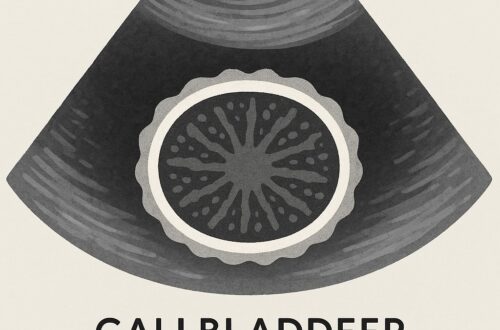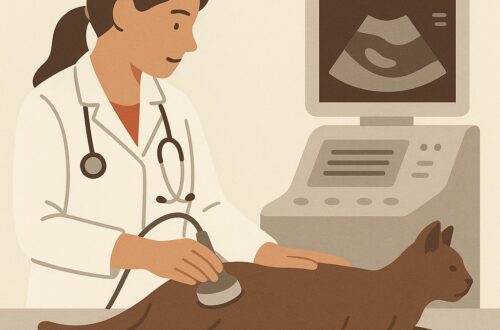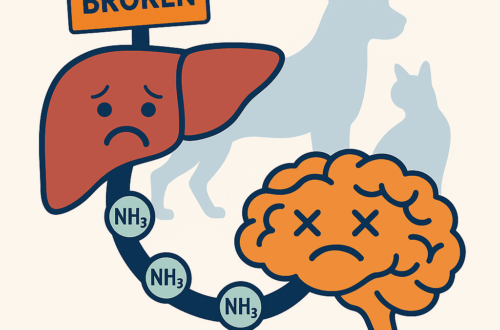I evaluate patients with chronic gastrointestinal signs like vomiting and diarrhea multiple times per day. Many of these fur babies are referred to me by their family veterinarians with a concern for inflammatory bowel disease or IBD. But what is IBD? This week I endeavor to answer that important question for all of you. Happy reading!
IBD – What is it?
Inflammatory bowel disease is a chronic gastrointestinal (GI) condition characterized by infiltration of varying types of immune/inflammatory cells into the layers of GI tract.

Inflammation of the small intestine is called enteritis while inflammation of the large intestine (also called the colon) is termed colitis. When inflammation is present in both the small and large intestine, we use the term enterocolitis. Major types of IBD based on inflammatory cells are:
- Lymphoplasmacytic
- Eosinophilic
- Suppurative
- Granulomatous
To complicate matters, it is not unusual for some patients to have infiltration of several different types of immune/inflammatory cells. Suffice it to say, we don’t fully understand what triggers the immune system to cause the GI inflammation in IBD patients; this is an active area of research in veterinary (and human) medicine. Something angers the immune system (e.g. antigenic stimulus); it subsequently throws a temper tantrum (e.g. triggers the formation and activity of inflammatory cells), and takes its anger out on the GI tract (e.g. cause GI inflammation). With chronic ongoing inflammation, the GI tract thickens. Such thickening interferes with normal absorption of nutrients, as well as with normal motility of the GI tract.
It is worth noting IBD is not the same as irritable bowel syndrome or IBS. Many pet parents confuse these two conditions, and often considered IBD and IBS synonymous conditions. Yet, they are distinctly different. Inflammatory bowel disease is a physical condition caused by chronic inflammation in the GI tract while IBS is psychosomatic in nature. The latter is related to stress and anxiety that triggers large intestinal diarrhea chronically.
IBD – What does it look like?
Patients with IBD often have variable clinical signs. Some may have minimal evidence of disease while others can be profoundly ill. Weight loss, a reduced appetite, and some degree of chronic intermittent vomiting and/or diarrhea are common complaints of families. I’ve previously discussed vomiting in cats. If a shorthaired cat vomits more than once every two months, a veterinary evaluation is needed. Similarly, if a medium or longhaired cat vomits more than twice month, veterinary attention is indicated.
Chronic diarrhea is a frequent part of the history of a pet with IBD. The GI tract is quite long, starting at the mouth and terminating at the rectum. The characteristics of a pet’s diarrhea actually depend on the area of the GI tract infiltrated by immune/inflammatory cells. Signs consistent with small intestinal chronic diarrhea include:
- Normal posturing to defecate without pain or straining
- Feces are often very watery in consistency – parents often describe their pet’s defecation like the spraying of a hose
- Feces do not have fresh blood (raspberry jam) or mucus in them
- The volume of diarrhea is at least normal and often larger than normal
- Frequency of defecation is normal
- Weight loss and increased intestinal sounds are present
Signs consistent with large intestinal diarrhea include:
- Straining to defecate
- Increased frequency of defecation
- Feces often contain fresh blood and/or mucus
- Weight loss is not a common finding
- Fecal volume is commonly smaller than usual
IBD – How is it diagnosed?
There are many causes of chronic vomiting and/or diarrhea in dogs and cats. Inflammatory bowel disease is only one on a long list of problems. The easiest way for me to think about all the causes is to think about two general categories:
- Primary GI tract disorders (including IBD)
- Everything else
Thus, veterinarians must perform a logical series of blood, urine, fecal/stool, and imaging (i.e.: ultrasonography) tests to help eliminate other ailments from the list of possible diseases.
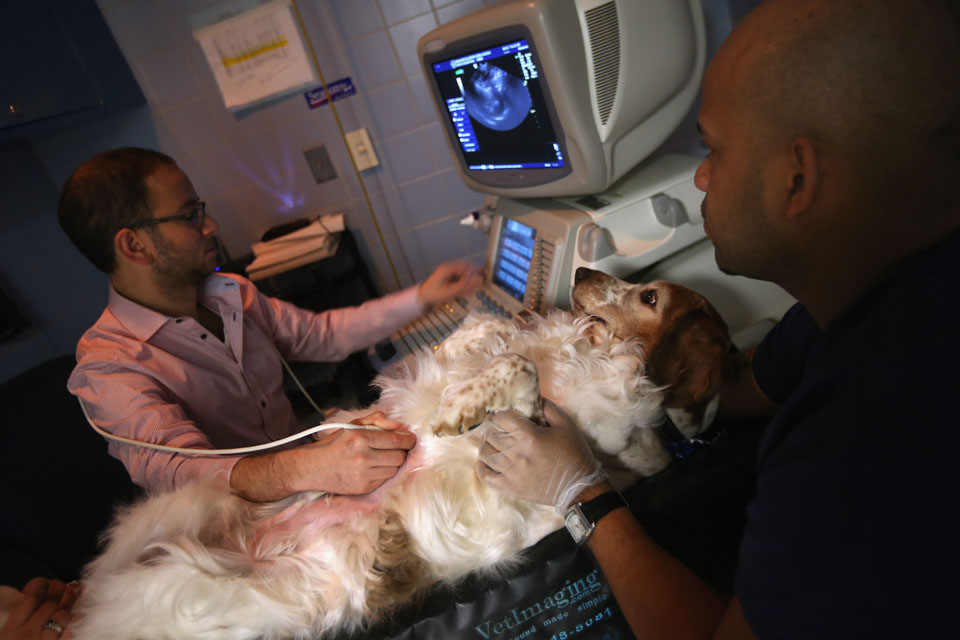
Some common causes of chronic vomiting and/or diarrhea in dogs and cats include:
- Cancer (i.e.: lymphoma, adenocarcinoma, mast cell disease)
- Infections (i.e.: parasites, fungi, protozoa)
- Food intolerance
- Motility disorders
- Hormonal disorders (i.e.: hypoadrenocorticism/Addison’s disease, hyperthyroidism)
- Pancreatic disorders (chronic pancreatitis, exocrine pancreatic insufficiency)
- Liver disease (cholangiohepatitis, hepatic lipidosis)
- Chronic kidney disease
Currently the only way to definitively diagnose IBD is via evaluation of GI tract biopsies. For this reason, I believe it is essential to rule out any potential cause of a pet’s clinical signs that doesn’t require biopsies first! Partnering with a board-certified veterinary internal medicine specialist can be instrumental for developing a logical and cost effective diagnostic plan. A previous blog post discussed the ways veterinarians biopsy the GI tract, and readers are encouraged to review the information here.
IBD – How is it treated?
Treatment for IBD is often multi-faceted with affected pets benefiting from a special diet, nutritional supplements, and/or various medications. Each patient is different. An effective treatment regime for one patient won’t necessarily help another patient.
Diet: We don’t yet know the most appropriate diet for a patient living with IBD. Some benefit from a food containing a novel protein source while others respond well to diets with hydrolyzed proteins. Common examples of novel animal proteins in the United States are rabbit, venison, kangaroo, duck, and fish. Soy-based protein may be helpful for some dogs. Cats are obligate carnivores; they require an animal-based protein source in their diets. Hydrolyzed proteins have been broken down before digestion so they are too small to stimulate the immune system. They also contain different fatty acids that make them easier to absorb.
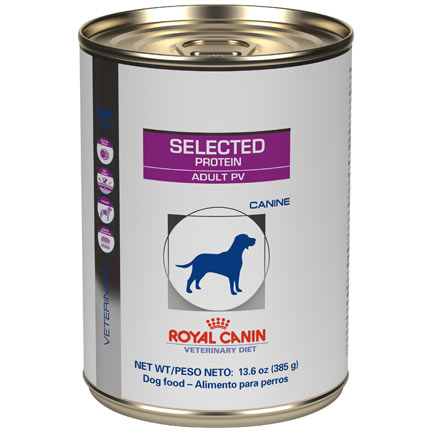
Anti-diarrhea medications: Dogs and cats with chronic diarrhea often benefit from an anti-diarrhea medication. Common examples include metronidazole/Flagyl® and tylosin.
Anti-nausea medications: The GI inflammation associated with IBD frequently causes nausea in affected pets. Thus, these patients often benefit medicines that aim to curb nausea, including metoclopramide/Reglan®, ondansetron/Zofran®, dolasetron/Anzemet®, and maropitant/Cerenia®.
Nutritional supplements: Some patients with IBD benefit from certain vitamin supplements, particularly cobalamin (also known as vitamin B12). Traditionally, pet parents supplement cobalamin via a weekly under-the-skin injection given at home. Recently studies have documented the efficacy of an oral vitamin B12 supplement; this may be used chronically in affected pets. Some pets also benefit from the anti-oxidant properties of vitamin E.
Immunomodulatory medications: Veterinarians will frequently prescribe medications that alter the way the immune system responds. This modulation is aimed at reducing the infiltration of immune/inflammatory cells into the GI tract. We don’t yet know the most effective immunomodulatory medication(s) for IBD patients, as each patient’s disease is truly unique. Common examples of immunomodulators are:
- Prednisone/prednisolone
- Cyclosporine/Atopica®
- Azathioprine/Immuran® – dogs only
- Chlorambucil/Leukeran®
- Budesonide/Entocort EC®
Collaborating with a board-certified veterinary internal medicine specialist can helpful to develop the most appropriate treatment plan for your fur baby.
Pet parents frequently ask me,
“Can we just treat for IBD without doing all of the recommended testing?”
Such a course of intervention is possible – to a degree – as long as families understand the limitations and risks associated with empirical (best guess) therapy. I discussed empirical therapy in a previous blog post – please read more here.
The take-away message about IBD in dogs & cats…
Inflammatory bowel disease is a relatively common gastrointestinal disorder in dogs and cats. Affected patients have chronic vomiting, diarrhea, weight loss, and/or appetite fluctuations. Many diseases can cause these clinical signs, and thus a thorough diagnostic investigation is needed. Definitive diagnose requires examination of biopsies of the GI tract. Veterinarians employ a multi-faceted approach to treatment, utilizing medications to modulate the immune system, diet, and variations supplementations and drugs to support the health of the GI system.
To find a board-certified veterinary internal medicine specialist, please visit the American College of Veterinary Internal Medicine.
Wishing you wet-nosed kisses,
cgb



